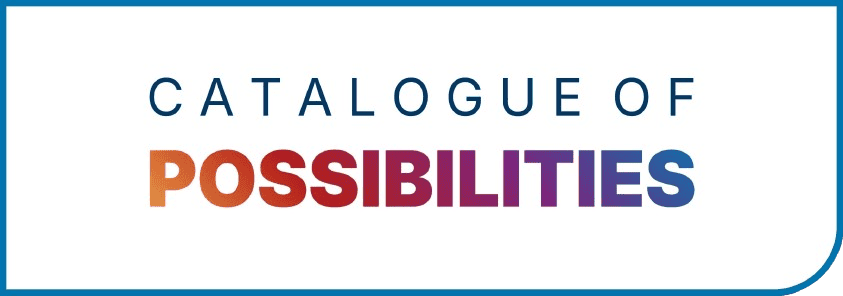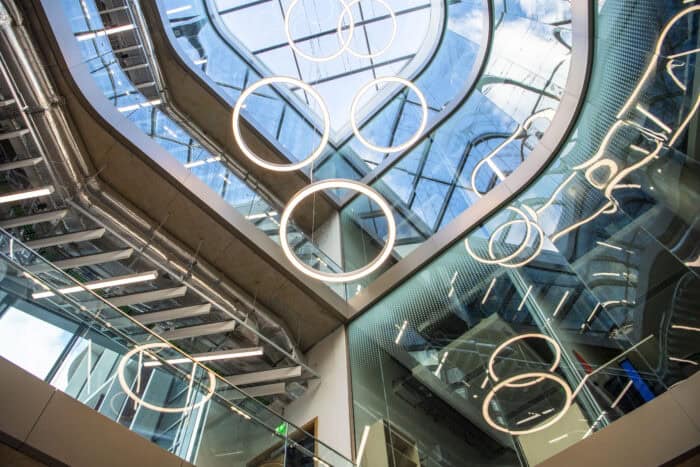About us
Are you keen to make a difference with your STEM knowledge?
Are you considering postgraduate research but are looking for something different?
DiveIn invites you to break barriers and redefine what is possible.
Our innovative Centre for Doctoral Training (CDT) model prioritises diversity, creating an inclusive space for varied talents to produce transformative interdisciplinary research in Net Zero, AI and Big Data, Technology Touching Life, Future Telecoms, Quantum Technologies and more.
Our stipends are enhanced by £4k per year over the recommended UKRI rate, aiming to remove financial barriers and open doors to a PhD journey for all.
So DiveIn!
Where your unique perspective is not just valued; it is the driving force behind groundbreaking innovation.
Your research journey starts here!
Visit our Catalogue of Possibilities and get inspired.
Browse the catalogue and save the pages that speak to you.
Mission Statement
At DiveIn, we redefine the conventional Centre for Doctoral Training (CDT) model with a vision that places diversity at the core.
Unlike traditional models centred around restrictive scientific themes, DiveIn prioritises the richness of our postgraduate research student (PGR) cohorts.
Our commitment to diversity spans fields, thoughts, backgrounds, and demographics.
-
Transforming Research and Innovation Landscape
By challenging the status quo, we aim to foster innovation and scientific excellence across critical EPSRC Mission-Driven Priority Areas (MPAs): Beyond Net Zero, Artificial Intelligence & Big Data, Technology Touching Life, Future Telecoms, Quantum Technologies and Problem-Based Interdisciplinary Research.
In doing so, DiveIn strives to reshape the Engineering and Physical Sciences (E&PS) research landscape in the UK.
In a scientific context where conventional papers and patents are becoming less disruptive, DiveIn seeks to break down silos and promote interdisciplinary collaboration.
-
Diversity as the Catalyst for Innovation
Scientific evidence underscores the connection between diversity and fresh perspectives in problem-solving.
Our approach goes beyond acknowledging diversity’s impact; it actively leverages varied talents to drive innovation.
Embracing diversity not only in PGRs but also in supervisors, management teams, partners, and mentors, DiveIn aims to create a holistic environment where innovation flourishes.
-
Fostering an Interdisciplinary Research Environment
DiveIn goes beyond conventional boundaries to foster an environment where interdisciplinary research is not just encouraged but made accessible.
Our model mirrors the ideals of mission-driven, open, and trustworthy research practices.
This is supported by a vibrant network of external partners and equitable team dynamics, reinforcing the indivisibility of diversity, positive research culture, and excellence in interdisciplinary research and innovation.
-
Addressing Barriers Through Best Practices
Recognising the challenges faced by a diverse community, DiveIn is committed to adopting evidence-based best practices.
Our Theory of Change and Three-axes Delivery Programme: Connect, Belong,Thrive, underpin a strategic approach to dismantling barriers, drawing on our own experience in Justice, Equity, Diversity and Inclusion initiatives and published literature.
We will continually evaluate our practices, using both quantitative and qualitative data, and will always welcome being challenged and held accountable.
-
Validation Through Excellence
DiveIn seeks to validate a direct pathway from diversity to scientific excellence, applying the Theory of Change model.
Our innovative model challenges the norm, demonstrating that certain CDT provisions should embrace an inverted model centering on people and interdisciplinarity.
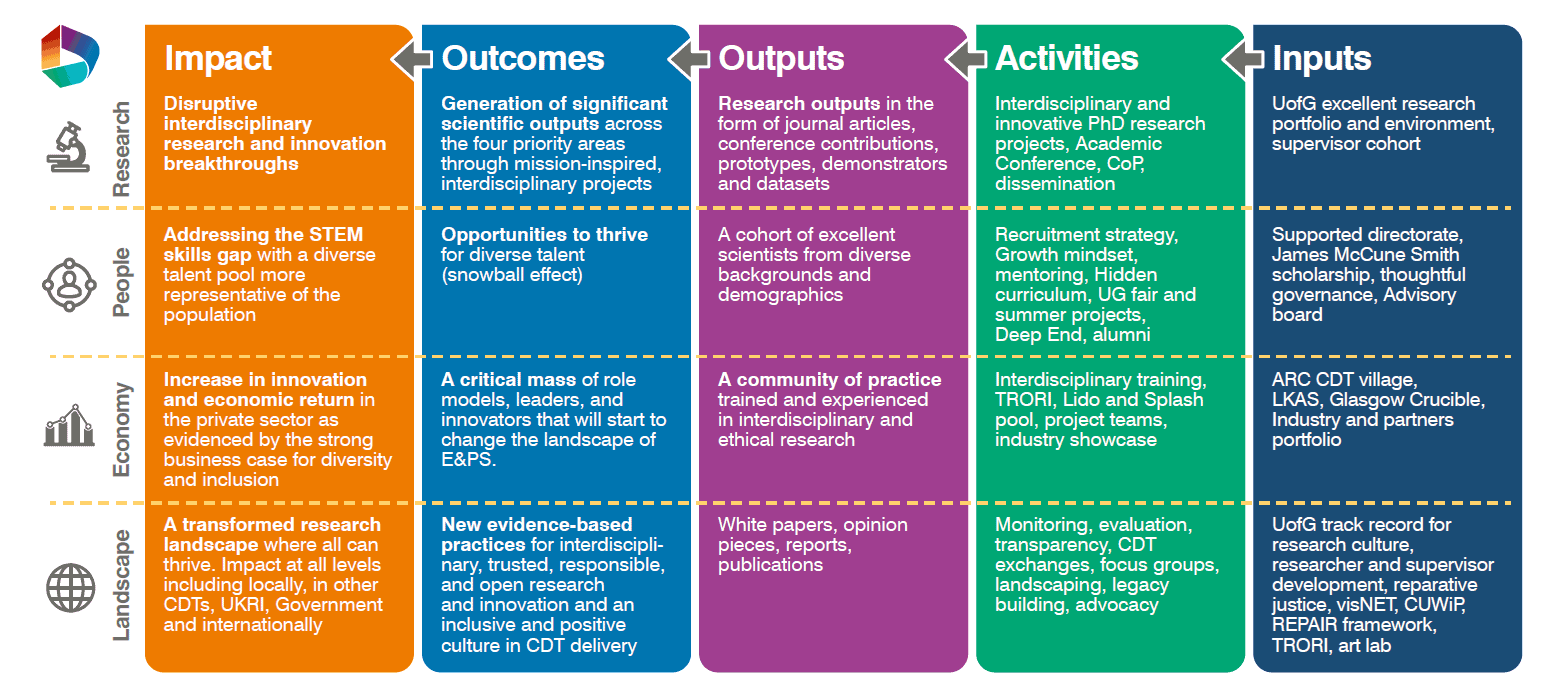
Theory of Change Graph Depicting Expected Impact and Outcomes of DiveIn
The Directorate
DiveIn embeds diversity within its leadership and the Directorate comprises of four Co-Chairs who play an equal role in the management of the Centre.
-
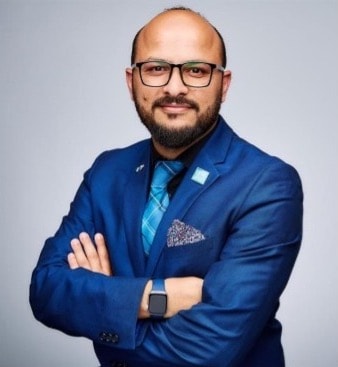
Professor Qammer Abbasi
he/himI am a Professor, Theme lead for Connecting People at the James Watt School of Engineering at the University of Glasgow, and Co-Director for the Communication Sensing & Imaging Hub. I have a grant portfolio of £10m+ from local/international funders, as well as industrial partners. I have published more than 400 papers in peer reviewed journals (including Nature Portfolio) and conferences, in addition to 11 edited books.
I am the chair of IEEE APS/MTT UK, Ireland and Scotland chapter, Vice Chair for IEEE Young Professional Committee at Antenna and Propagation society and I am a Fellow of the European Alliance of Innovation, the Royal Society of Arts, the Institution of Engineering and Technology, as well as a Senior Member of IEEE. I am working/worked with researchers from over 20 nationalities, including refugees, those from war zones and/or developing countries, and I am a strong advocate for diversity.
-
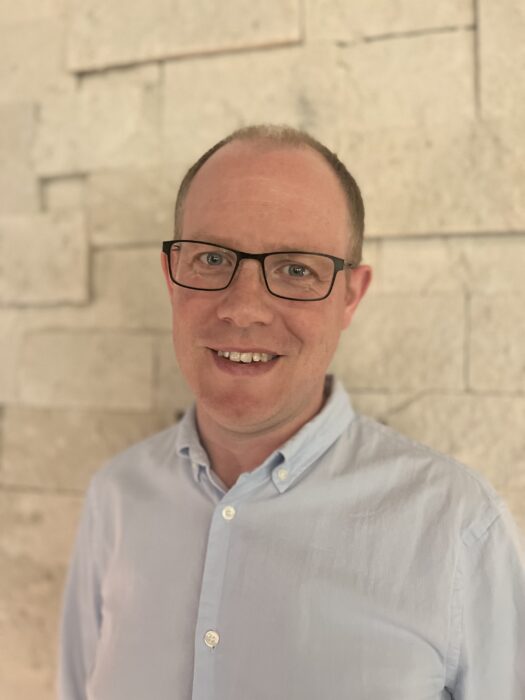
Professor Ross Forgan
he/himI am Professor of Supramolecular and Materials Chemistry and the Head of the Functional Molecules and Assemblies research grouping in the School of Chemistry at the University of Glasgow. I lead a thriving research program in the development of new porous materials for green energy and nanomedicinal applications. I am also a parent of two young children, and previously led the School of Chemistry’s Athena SWAN efforts, so I am hugely excited by the genuine prospect for changing the academic research culture that the DiveIn CDT represents.
-
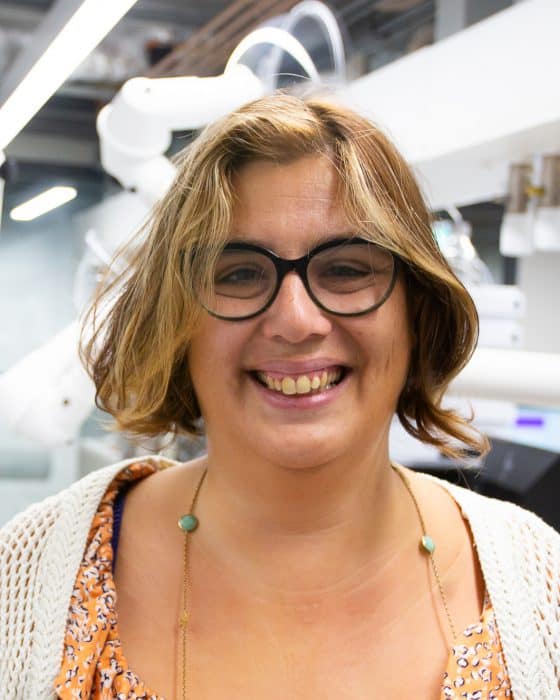
Professor Caroline Gauchotte-Lindsay
she/herI am a Professor in Environmental Chemistry and Engineering at the University of Glasgow. My diverse and thriving research group carry out research at the interface of biotechnology and analytical chemistry, developing innovative solutions to the world’s most pressing environmental challenges, particularly towards the sustainable development goal 6, clean water and sanitation. Our work is anchored in real-world issues through solid partnerships with industry and policy makers. I am also committed to creating a future where every researcher can thrive and reach their full potential, this is why I have led the visNET programme and I am excited to “DiveIn”.
-
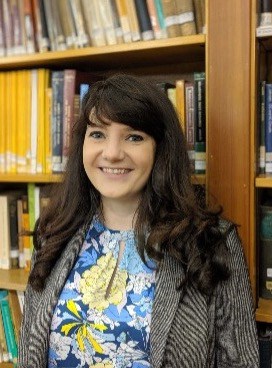
Dr Caroline Müllenbroich
she/herI am a Lecturer in the School of Physics and Astronomy at the University of Glasgow, where my team and I work on developing novel optical microscopy techniques to investigate the function and structure of the heart. I am also working to increase inclusion and diversity in the STEM community. For example, I led the Conference for Undergraduate Women and Nonbinary Physicists in Glasgow which aimed at encouraging participants to persist with their studies and reignite their joy in physics. I believe that physics is for everyone and can make all kinds of people thrive and in turn physics itself will thrive, once it is pursued by all kinds of people. I see the DiveIn CDT as an opportunity to create a sense of belonging in the next diverse generation of researchers and so enable them to make the next breakthroughs in science and innovation.
Find out more about Caroline here (University of Glasgow)
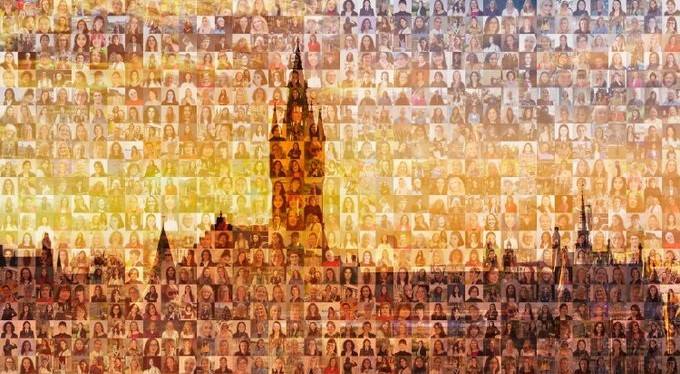
The University of Glasgow
As the home of DiveIn, the University of Glasgow has an extensive track record for their work in equity diversity and inclusion and interdisciplinary research.
- Collegiality, career development, research recognition, open research and research integrity are principles enshrined in University’s Institutional Strategic Priorities for Research Culture 2020-2025.
- Interdisciplinarity is fostered with the Lord Kelvin Adam Smith Scholarships and the Glasgow Crucible.
- The University’s work on reparative justice in relation to its historical links to slavery contributed to its Times Higher Education Award in 2020.
- The University of Glasgow identified actions to tackle racial inequality in the report Understanding Racism, Transforming University Cultures, and it undertook a vital step to address underrepresentation with its James McCune Smith Scholarships for black UK PGRs.
- visNET, the EPSRC Inclusion Matters programme led by the University, has successfully employed community building, peer-mentoring, and bespoke training to support the STEM career of women PDRAs in Scotland.
- Amplify, a diversity initiative led by the University E&PS provides industry mentorship and cohort activities for undergraduate students (UG) from marginalised backgrounds.
- The CUWiP conference for UG women and nonbinary physicists, hosted by the School of Physics and Astronomy in 2022, achieved unprecedented inclusion and diversity.
These programmes have contributed to the University of Glasgow being a safe and welcoming space to study and have demonstrated that communities can be built across scientific subjects. The University of Glasgow is therefore the ideal place to first translate these learnings into a pioneering CDT.

